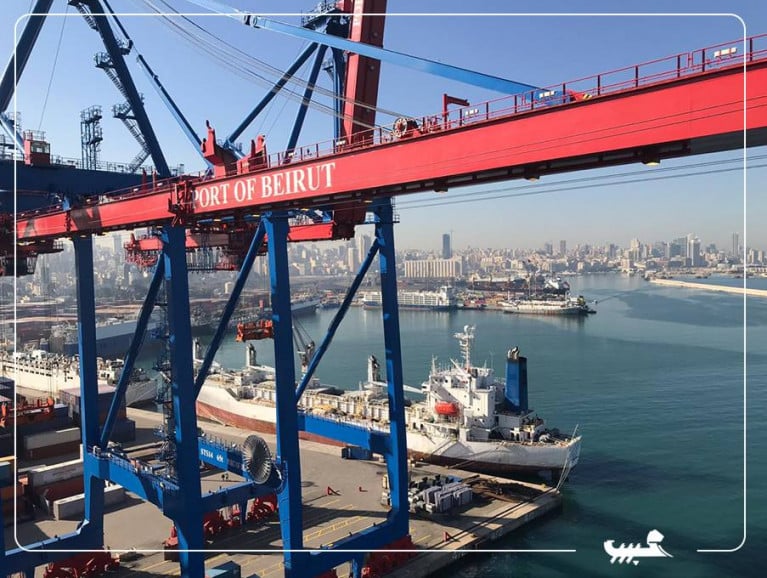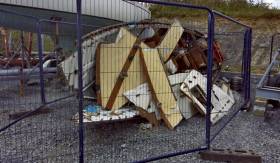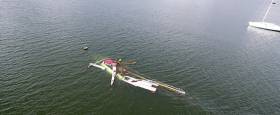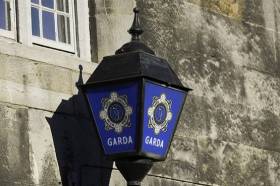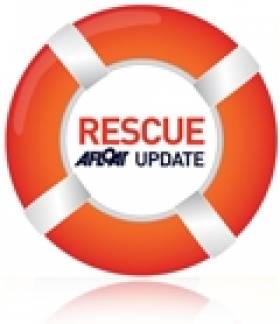Displaying items by tag: Explosion
Lebanon: Port of Beirut's Container Terminal Resumes Operation
At the Port of Beirut the container terminal has reopened a week after an explosion that devastated much of the Lebanese capital.
The first two containerships to call at the port, LloydsLoadingList reports, berthed on August 10 as the box terminal began to resume operations.
The 2,670 (teu) Electra A, owned and operated by Turkish operator Arkas, had been sitting at the Beirut anchorage for two days. It has since left and is en route to Iskenderun.
"We discharged and loaded all full containers as planned without exception," a spokesman for Arkas said. "The surprising and pleasing news for us was that no damage was reported on any full export container. However, we cannot yet say the same for empty containers.
`While the operation of MV Electra A was going on, the conditions of the empty containers was not clear yet. Therefore, empty containers were not loaded on this call."
He added that while the crew were not allowed ashore, the ship's master reported that the east part of the terminal was in good condition.
More on this development here at the west Asian port on the shores of the eastern Mediteranean Sea.
Loose Gas Hose Likely Culprit In ‘Pegasus’ Explosion
#MCIB - A loose gas hose is the most likely cause of an explosion that sank a restored classic yacht in Galway Bay earlier this year, according to the official investigation into the incident.
As previously reported on Afloat.ie, an attempt to boil a kettle almost ended in tragedy with the blast on board the 26ft sloop Pegasus on Saturday 9 April, just months after her first full season following relaunch.
Both sailors on board — the owner and a colleague — survived the incident, with the former treated for burns to his hands, though the boat itself was destroyed.
Investigators from the Marine Casualty Investigation Board (MCIB) determined that the explosion was most likely caused by a build-up of gas in the bilges of the boat over a number of minutes after the cockpit valve was turned on, which ignited when the owner struck a match to light the newly installed stove.
While the MCIB report was not able to determine the exact layout of the gas cylinder, regulator and hose connected to the cooker prior to the incident, it was found that the hose itself was too large for its connections despite being clamped, and had likely loosened some time before, allowing gas to leak.
The investigation also noted that the vessel had no gas alarm, which would have given ample warning of a leak to those on board.
The full MCIB report is available to download below.
A much-admired ongoing restoration project, which had resulted in the full return to original condition of the classic sloop-rigged 26ft South Coast One Design Pegasus, almost ended in tragedy with an explosion aboard the newly-launched boat on the Galway Bay SC moorings at Rinville near Oranmore at the weekend.
What would have been the boat’s second full season after her restoration ended before it had properly begun. She was rigged and ready to have her sails set, but an attempt to boil a kettle resulted in the gas explosion which blew the deck and cabin off the hull, set the hull on fire, brought the mast down, and sank the boat within one and a half minutes.
Fortunately both sailors on board were wearing lifejackets, and despite their burns and injuries, were able to get to a nearby boat. But while one of them was later released from hospital after treatment for burns, the other has been kept in for observation, though it is thought his injuries are not serious.
Boat Explosion In Galway Bay Sends One To Hospital With Burns
#Explosion - Galway Bay FM reports that a man was hospitalised after an explosion on a boat near Oranmore yesterday afternoon (Saturday 9 April).
Gardaí stated that a gas build-up in the vessel's engine caused the accidental explosion as it was being sailed in Galway Bay near Renvile.
One of the two was safe recovered to the shore while the other was taken to hospital with burn injuries that are not thought to be life-threatening.
Four People Hurt in Boat Gas Explosion in the UK
Two men, one woman and a teenage boy all suffered burns in the explosion on the boat moored near to the Angel Inn, Severn Side, Stourport-on-Severn at 7.30am on Thursday evening reports YBW.com
The teenager was airlifted to Queen Elizabeth Hospital in Birmingham with major burns to his hands and face. A man in his 60s suffered flash burns to the face, while another man suffered superficial burns to the neck and arms. The woman received burns to her arms.
A spokeswoman said: “When crews arrived they found a boat which had reportedly suffered a gas explosion on board.
“There were four people on board the boat at the time of the explosion.
“A teenage boy, believed to be 17-years-old, suffered the most serious injuries with significant burns to his hands and face.”
Victims were given burns care on scene by ambulance staff before being taken to Worcester Royal Hospital for further treatment.
West Midlands Ambulance Service said two ambulances, a responder paramedic, two senior paramedic officers and the Midlands Air Ambulance from Cosford with trauma doctor on board, attended the scene.
Read more at YBW here
In Ireland, Bord Gáis Networks has provided guidance for keeping aware of the dangers of fumes from gas or fuel-powered generators, heaters or cookers.
Boaters are urged to think of the appliances on their vessels and whether they burn fuel oil, gas, LPG, wood or coal, which all produce carbon monoxide by burning.
Carbon monoxide becomes a hazard when there is not enough air flow to burn the fuel properly - more likely in an enclosed space such as a boat cabin - so ventilation is very important.
Make sure all flues and exhaust outlets are clear and ventilated, and ensure any appliances used are suitable for boats and serviced annually by a qualified agent.
Boat-owners are reminded of the good practice of installing a carbon monoxide alarm, and to know the signs of carbon monoxide poisoning - which include headache and dizziness, leading to loss of judgement, nausea, possible convulsions and elevated heartbeat.
Lucky Escape For French Skipper From Yacht Blaze
#Explosion - A French yachtsman had a lucky escape after an explosion on his yacht that quickly engulfed the vessel in flames.
As Practical Boat Owner reports, the solo sailor called 999 for British emergency services after the incident on his 36-foot yacht some 15 nautical miles off Sunderland in the north-east of England early yesterday morning (Friday 22 August).
The man was winched to safety from his liferaft by a rescue helicopter from RAF Boulmer as lifeboats from Hartlepool RNLI also attended the scene to secure the area around the burning yacht.
"Fortunately, the sailor was uninjured but it was very sad to see his yacht burn and then sink so quickly," said Hartlepool coxswain Robbie Maiden.
"We understand the boat was his home and he was sailing from Iceland to Holland, but it looks like he’s lost nearly everything."


























